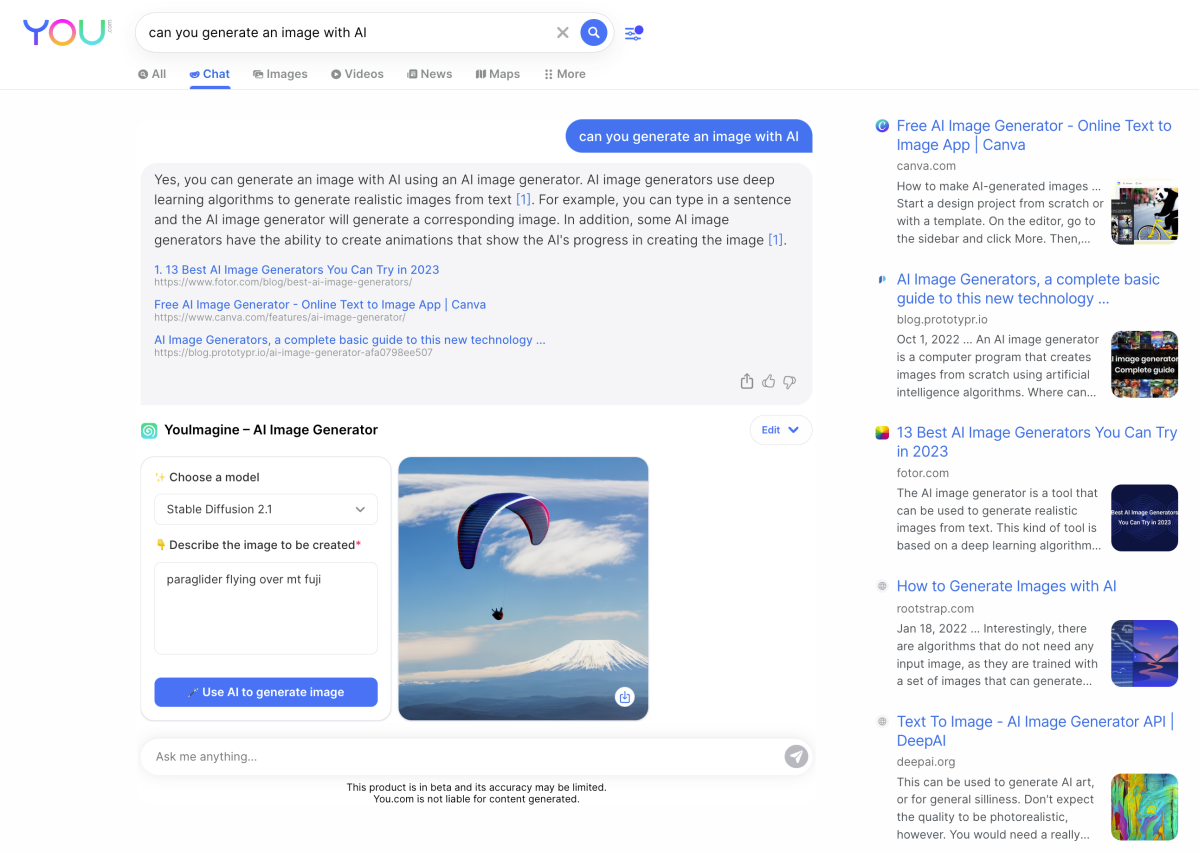You.com thinks the future of AI chatbots is (gasp) images
 Image: You.com
Image: You.comYou.com, a small AI-infused search engine seeking to rival Bing and ChatGPT, has already iterated on its first AI chat, launching YouChat 2.0 on Wednesday. The difference is that You.com is moving away from a strictly text-based interface, adding in charts, graphics, and code to its responses.
On first glance, YouChat 2.0 looks more like a traditional search engine, with an answer on top and more detailed, graphics-rich responses below. Bing, however, separates its chat response in a separate “window” that opens above its traditional search results. Its only graphical responses come in the form of ads, which break up the lengthy text responses. ChatGPT provides no imagery at all, period.
Does such a mix-and-match of text and imagery matter? No, not if you’re used to searching for text and then landing on a web page. But for a search engine, it’s another twist on aggregating the answer in a chat format, and now supplementing it with additional graphics from the source page in general.

You.com
You.com
You.com
You.com calls YouChat 2.0’s response format “chat, apps, links,” where all three are provided in a “ChatGPT-like large language model with links to sources, custom applications, and real-time data,” the company says. You.com considers “apps” to be various specific sources of information (Reddit, TikTok, StackExchange, and so on) where the content is pulled out and aggregated. In this model, if you search for a stock price, YouChat 2.0 will open that stock chart below. You.com says it will use this model for over 50 apps, with more to come.
You.com’s updated YouChat model doesn’t necessarily mean a sea change in search. But it does indicate that the separation between a list of links and a plain, textual chat interface might not last. The future of search may look a lot closer to the web pages that those search engines are grabbing their information from.
Author: Mark Hachman, Senior Editor

As PCWorld’s senior editor, Mark focuses on Microsoft news and chip technology, among other beats. He has formerly written for PCMag, BYTE, Slashdot, eWEEK, and ReadWrite.
Recent stories by Mark Hachman:
Comcast’s new NOW prepaid Internet looks surprisingly compellingUdio’s AI music is my new obsessionBroadband ‘nutrition labels’ kick in, revealing hidden fees for ISPs



